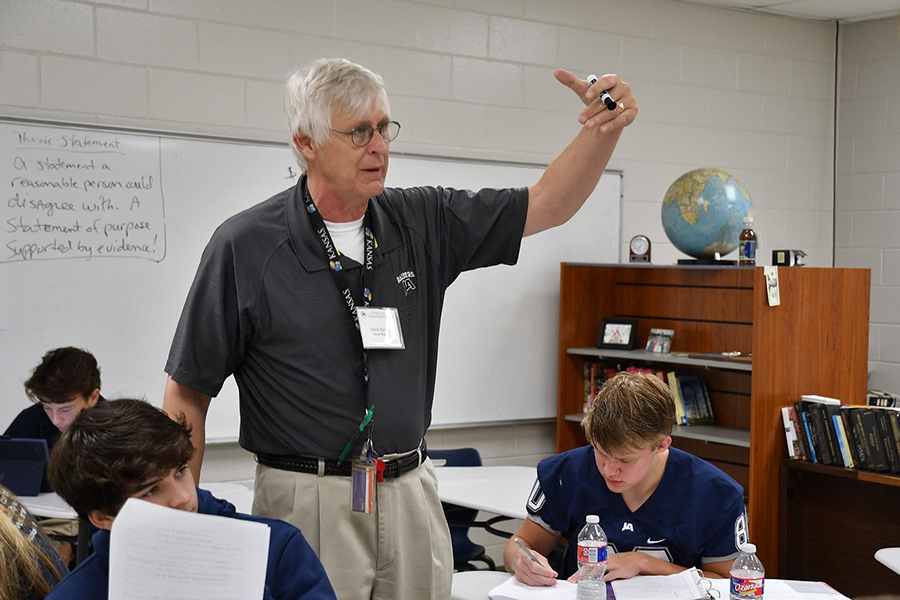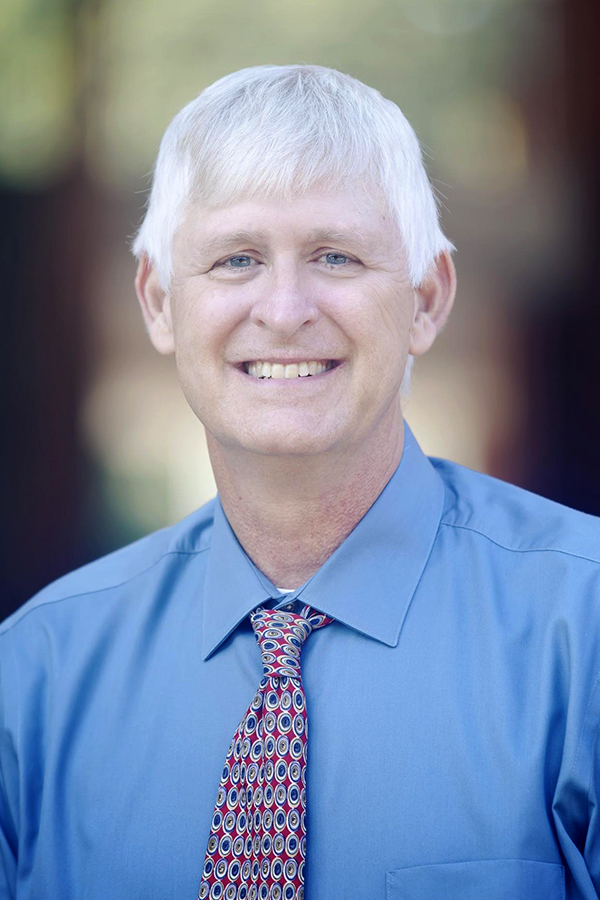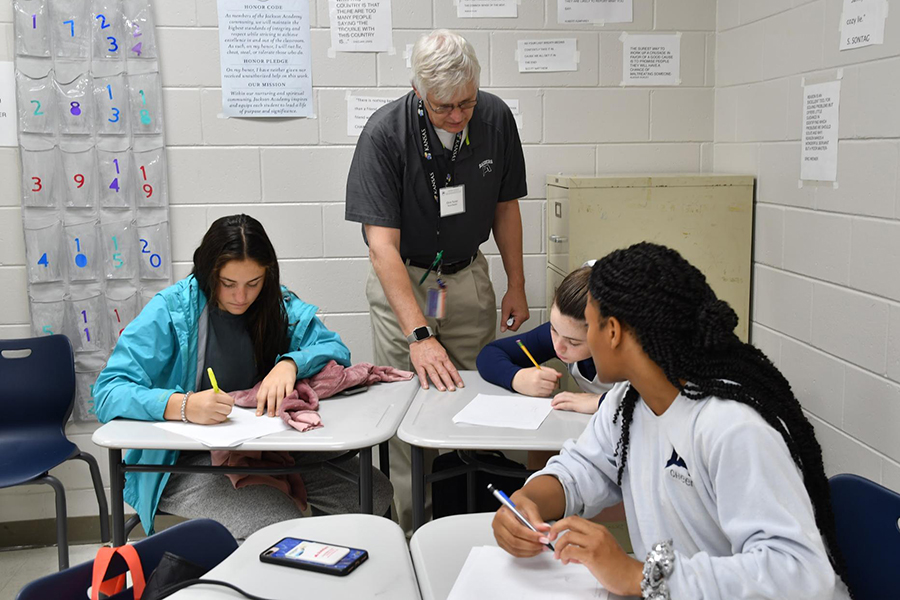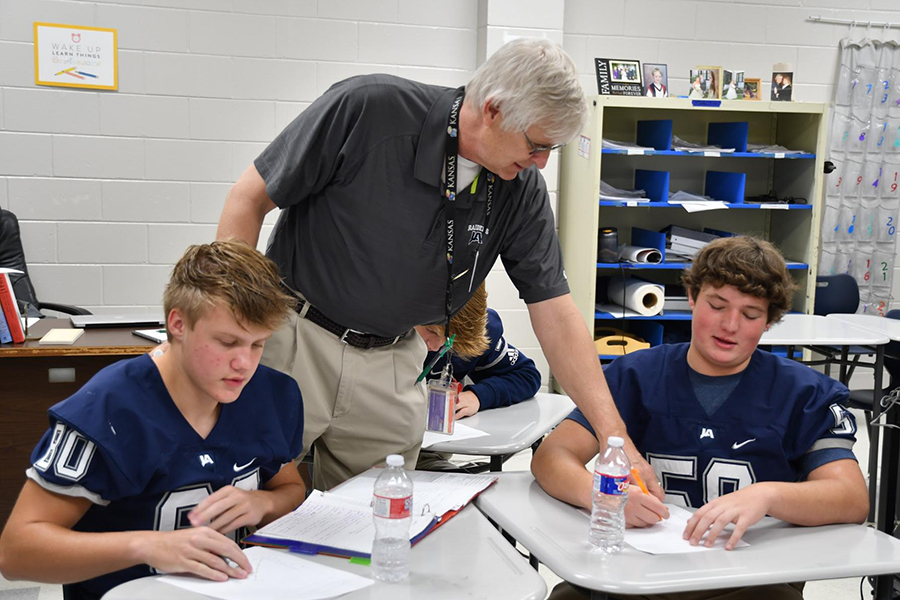

A rising eleventh-grade student walked forward, made direct eye contact with me, and introduced herself. She maintained her gaze, had a pleasant expression, and spoke clearly and articulately.
As she walked away, her teacher beamed. Her introduction was what he hoped to see, especially from one of the students to whom he teaches not only history but also the skills that many adults find difficult, such as meeting others and speaking in public — and doing so with confidence.

Chris Tucker, a veteran teacher at Jackson Academy with 35 years of service, believes teaching more than the subject matter is part of his role. He calls it “developing confidence in their competence.”
Confidence is an asset that schools should develop, nurture, and strengthen in students, Tucker said. Confidence is interrelated with honesty, competence, and courage. Tucker wants his students to feel confident—not because they have a certain bravado—but because they are secure in their competence.
Honesty
A key building block of confidence is honesty.
“Honesty is the first step to confidence,” Tucker said. “Honesty must be an expectation within the school in and out of the classroom.”
Across all grades, teachers at JA reinforce the importance and value of honesty, and so do students. In 2017, JA launched a student-led Honor Code and Pledge. Students apply to be selected to serve on the Honor Council, a body that hears Honor Code violations and makes recommendations to the administration for resolutions when students have disregarded the code.

Confidence
Confidence grows as a student tackles academic challenges that at first may seem daunting, Tucker said: “Confidence is based on competence.”
Faculty members model competence and an appropriate amount of confidence, and students pay attention to that. “The way teachers relate to students sets expectations,” Tucker said, “and that’s important, too.” Teachers mentor students throughout their years at JA in ways that cultivate students’ competence.
JA students can feel confident in their academic preparation and know they have attended a quality school. “JA’s name carries some weight across the Southeast,” Tucker said.

Courage
The last building block of confidence is courage, and it is as important as honesty and competence.
“Courage—you must have it to show confidence,” Tucker said. “But quiet confidence is more impressive than loud confidence.”
Tucker knows firsthand how competence, courage, and confidence work together. He arrived at JA as a 21-year-old college graduate with no teaching experience, other than student teaching. Thirty-five years later he has the long view of the value of the school’s work in developing confidence—from his own perspective, from that of generations of graduates, as well as from watching his two children, both JA graduates, exude an appropriate amount of confidence during their college years and in their careers.
“This school has given me confidence,” he said, noting that confidence is more durable than bravado, which he considers “a ship that is going to sink.”
Watching one of his students introduce herself to an adult, Tucker smiles. He is witnessing honesty, competence, and courage—and knows that he, and other faculty members at JA, helped instill it.
About the author: Patti P. Wade leads the Office of Marketing & Communication at Jackson Academy. Her work since 1992 has been in staff and faculty roles in higher education and college-preparatory education. This article is part of a series that highlights character traits Jackson Academy helps foster.


